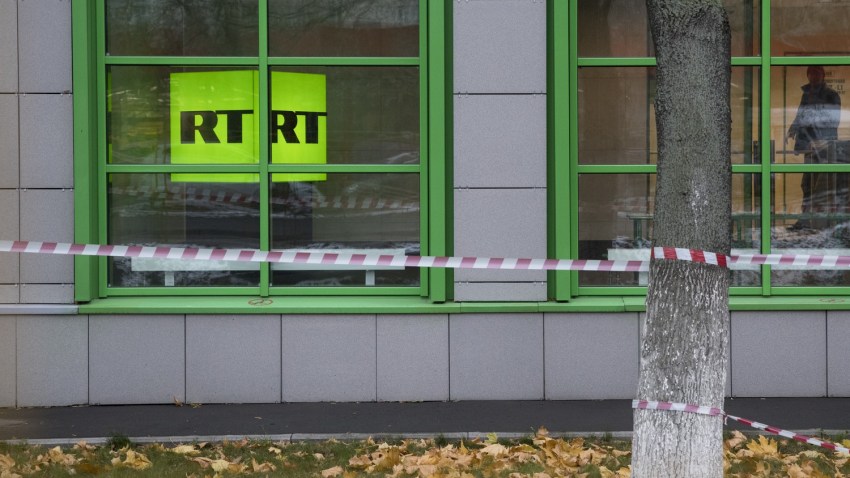Another avenue for legal challenge rests in the EU Charter—namely, Title II, Article 11, which protects freedom of expression and information and specifically the “freedom and pluralism of the media.” Last week, in response to the bloc’s decision to ban the broadcasts of RT and Sputnik, RT France lodged a complaint before the EU General Court. But the challenge has not yet been published, so it remains to be seen whether the complaint relies upon the Charter and related precedent. It bears noting that the EU sanctions are curtailed in that they extend to broadcasting but not to journalistic acts, such as conducting research for interviews, which lends a measure of support to its argument that the broadcast bans do not put freedom of the media at risk. The EU decision is notable for another reason, however—namely, that it seems to have no realistic end date. The formal EU declaration states that the measures “should be maintained until the aggression against Ukraine is put to an end, and until the Russian Federation, and its associated media outlets, cease to conduct propaganda actions against the Union and its Member States.” Apart from the sheer unlikelihood of this condition being met, the vagueness of its terms may be a weakness that can be challenged in court. As the legal challenges wind through the courts, one immediate consequence of the banning of RT and Sputnik that has broader implications for free expression in the near term is the likelihood that Russia will reciprocate. For example, one day after the RT DE ban last year, German international broadcaster Deutsche Welle suddenly found both its broadcasts and journalists barred from Russia. The U.K. appears to be aware of this danger. When Ofcom announced its investigation of RT, British Foreign Secretary Liz Truss acknowledged the “reality” that banning RT in the U.K. would likely spur the Kremlin to ban the BBC. That would limit not just Western journalists’ ability to report in Russia, but also the Russian people’s access to truthful information. The implications these bans have for free expression more generally also deserve particular consideration. While there is an obvious difference between state propaganda outlets like RT and Sputnik on one hand, and reputable, editorially independent national broadcasters like the BBC on the other, banning a channel solely for its disagreeable and even reprehensible viewpoints is extremely worrying. Disinformation is a significant, even ubiquitous, problem in closed and open societies alike. Yet, democracies can model a more sensible, productive and less heavy-handed approach to these challenges. Broadcasters can independently decide whether they wish to offer these channels, for instance. Social media companies can take steps to ensure that Russian state media is not promoted by their algorithms or allowed to advertise on their platforms. And both the public and private sector can take steps to buttress a robust national and local news infrastructure to facilitate the dissemination of truthful information. In the United States, RT is not banned, but since late 2017 it has had to register as a foreign agent based on the U.S. intelligence community’s assessment that it is “Russia’s state-run propaganda machine” and contributed to the Kremlin’s interference in the 2016 U.S. presidential election. An entity registered as a foreign agent under the Foreign Agents Registration Act, or FARA, is not limited in the information it disseminates, but is obligated to follow specific rules on labeling and recordkeeping. The stigmatization of RT and Sputnik as “propaganda” shops to be avoided or even banned does not fully solve the problem, however. These outlets thrive on branding themselves as somehow forbidden: “the news your government doesn’t want you to see.” When Western countries enact bans, they are only feeding those narratives and creating a convenient foil for authoritarian regimes such as that of Russian President Vladimir Putin to demonize democratic systems. This further exacerbates the harms caused by disinformation, and Russia’s own populace—sequestered as it is from trustworthy sources and exposed almost exclusively to state-sanctioned messaging—suffers as a result. The geopolitical ramifications of these bans cannot be ignored, either. China, for example, has not shied away from reciprocal measures against state actions in the past. In 2020, after the Trump administration limited the number of Chinese citizens who could work in the U.S. for five Chinese propaganda outlets, Beijing expelled reporters from The New York Times, The Wall Street Journal and The Washington Post. China is also clearly taking note of the proliferation of anti-disinformation laws in the West. Just last week, a top policy adviser to the CCP called for a new law to ban the dissemination of “fake information” online. Of course, regimes such as China’s can and do limit their populations’ access to information, whether online or otherwise, and they do not need the convenient excuse of a democratic government’s ban on particular state-sponsored media to act. Having these Western bans to cite as a parallel nevertheless makes for beneficial fodder. Most importantly for democratic societies, banning state-sponsored media to quell disinformation and propaganda, even when done with good intentions, careful consideration and in good faith, unavoidably comes with significant harm to the rights and principles of free expression. And as we have seen in recent years, democratic societies are far from impervious to their own would-be authoritarians, so they cannot dismiss the potential for bad actors to pervert and misuse laws and precedent. We need only look at the way in which access to accurate information has virtually disappeared inside Russia’s borders since the invasion of Ukraine to see the great harm that is done to free expression when governments throw up barriers to information that they would prefer to bury.For democratic societies, banning state-sponsored media to quell disinformation and propaganda, even when done with good intentions, unavoidably comes with significant harm to the rights and principles of free expression.
Nadine Farid Johnson is the Washington director of PEN America.

